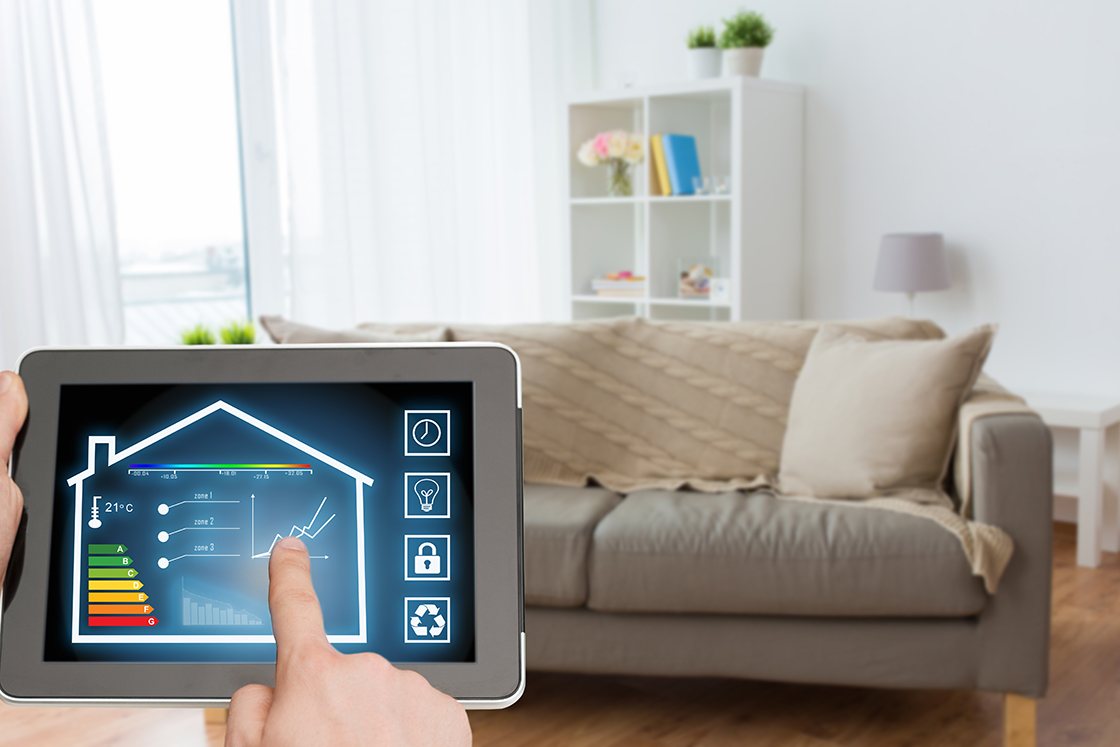Electric Heating: Sparking a Greener Tomorrow
The hum of progress is electric, and it’s whispering a new story about how we warm our homes and businesses. Forget the smoky past; electric heating solutions are not just a technological leap, they’re a vital step towards a healthier planet. This isn’t just about staying toasty; it’s about joining the charge for a cleaner, more sustainable future.
The Pollution Puzzle: Unpacking Fossil Fuel’s Grip
Traditional heating systems, often powered by fossil fuels like natural gas, oil, and propane, cast a long shadow. When these fuels combust, they release a cocktail of pollutants into the atmosphere.
The Environmental Impact in a Nutshell
| Problem | Fossil Fuel’s Role | Impact |
|---|---|---|
| Greenhouse Gases | Combustion releases CO2, methane, and nitrous oxide | Climate change, rising sea levels, extreme weather |
| Air Pollution | Particulate matter, sulfur dioxide, nitrogen oxides | Respiratory illnesses, smog, acid rain |
| Resource Depletion | Finite resources like natural gas and oil | Unsustainable practices, price volatility |
| Habitat Destruction | Mining and extraction of fossil fuels | Deforestation, ecosystem disruption, biodiversity loss |
Electric Heating: A Breath of Fresh Air
Electric heating, in contrast, offers a compelling alternative. While the electricity itself might come from a variety of sources, including fossil fuels, the crucial difference lies in the point of consumption. Electric heating, unlike burning fuel inside your home, avoids direct emissions at the point of use.
Electric’s Green Advantage
- Zero Direct Emissions: No combustion at the location of use, meaning cleaner indoor air and reduced local air pollution.
- Decarbonization Potential: As the electrical grid shifts towards renewable energy sources (solar, wind, hydro), electric heating becomes increasingly eco-friendly.
- Energy Efficiency: Electric heating systems, such as heat pumps, can be incredibly energy-efficient, transferring heat rather than generating it directly, using less energy overall.
- Reduced Reliance on Fossil Fuels: Less demand for fossil fuels, leading to a decrease in extraction and transportation impacts.
- Flexibility and Scalability: Electric heating solutions can be tailored to various needs, from small apartments to large commercial buildings.
The Renewable Revolution: Powering the Shift
The true environmental benefit of electric heating is realized when powered by renewable energy sources. The rise of solar, wind, and hydro power is transforming the grid and making electricity cleaner than ever before.
Renewable Energy: The Future of Power
- Solar Power: Harnessing the sun’s energy, abundant and sustainable.
- Wind Power: Utilizing the power of the wind with turbines for electricity generation.
- Hydropower: Generating electricity from the force of moving water, like dams.
- Geothermal: Tapping into the Earth’s internal heat for heating and electricity.
Electric Heating Technologies: Embracing Innovation
The range of electric heating technologies is vast, each offering unique benefits.
Electric Heating Options
| Technology | How It Works | Key Benefit |
|---|---|---|
| Heat Pumps | Transfers heat from outside to inside | High energy efficiency |
| Electric Furnaces | Electric resistance heating | Easy installation, lower upfront cost |
| Baseboard Heaters | Electric resistance heating | Zonal control, compact design |
| Radiant Heating | Heats surfaces (floors, walls) directly | Even heat distribution, comfort |
Beyond the Home: Electric Heating in Business
The benefits of electric heating extend beyond residential use. Businesses, from small offices to large industrial facilities, can significantly reduce their environmental footprint by switching to electric heating solutions. This shift not only contributes to sustainability goals but can also improve air quality for employees and customers.
Benefits for Business
- Improved Air Quality: Healthier indoor environments.
- Reduced Carbon Footprint: Contributing to corporate sustainability objectives.
- Potential Cost Savings: Long-term savings through energy efficiency and reduced maintenance.
- Positive Brand Image: Demonstrating a commitment to environmental responsibility.
Navigating the Transition: Making the Switch
Switching to electric heating isn’t just a flick of a switch. Careful planning and consideration are key.
Planning Checklist
- Energy Audit: Assess your current energy usage and identify areas for improvement.
- System Selection: Choose the right electric heating system for your needs and budget.
- Professional Installation: Ensure proper installation by a qualified electrician or HVAC technician.
- Grid Power: Investigate the electricity source on your region.
- Incentives: Explore government rebates and incentives for electric heating.
- Smart Home Technology: Integrate smart thermostats and energy management systems for optimal efficiency.
Conclusion: A Warmer, Greener Future
Electric heating is more than just a heating solution; it’s a cornerstone of a cleaner, more sustainable future. By embracing these technologies and supporting the transition to renewable energy sources, we can reduce our reliance on fossil fuels, mitigate climate change, and create healthier, more vibrant communities. The future is electric, and it’s heating up with promise.

Additional Information
The Environmental Benefits of Electric Heating Solutions: A Deep Dive
Electric heating solutions, powered by electricity, are increasingly seen as a key technology in the transition towards a sustainable energy future. While the environmental benefits can be significant, they are complex and depend heavily on the source of the electricity used. This analysis delves into the various aspects of these benefits, considering both the direct and indirect impacts.
I. Direct Environmental Benefits (At the Point of Use):
These are the benefits realized directly by utilizing electric heating appliances.
-
Zero Local Emissions: This is the most prominent and immediate benefit. Unlike fossil fuel-based heating systems (natural gas furnaces, oil boilers, propane heaters), electric heaters do not produce any greenhouse gas (GHG) emissions, particulate matter (PM), or other pollutants at the point of use. This is a significant advantage for indoor air quality and localized air pollution reduction, especially in densely populated urban areas.
- Improved Air Quality: Absence of combustion byproducts contributes to cleaner air, reducing respiratory problems (asthma, allergies), cardiovascular issues, and other health risks.
- Reduced Odor and Noise Pollution: Electric heating is generally quieter and produces less odor than fossil fuel alternatives.
-
High Energy Efficiency at the Point of Use: Electric heating technologies can be highly efficient at converting electricity into heat.
- Resistance Heating: Common electric heaters like baseboard heaters, space heaters, and furnaces have a near 100% efficiency rate at converting electricity to heat. All the electricity is converted into heat with minimal energy loss.
- Heat Pumps: Heat pumps, a more advanced type of electric heating, are significantly more efficient. They can achieve efficiencies far exceeding 100% (measured as Coefficient of Performance or COP) by extracting heat from the surrounding air (air-source heat pumps), ground (ground-source heat pumps), or water (water-source heat pumps). This means they can deliver more heat than the electricity consumed.
- Reduced Energy Waste: Efficient heating systems reduce the overall energy demand for heating, minimizing the strain on the electrical grid and, consequently, reducing the need for new power plants.
-
Reduced Material Use and Transportation: Compared to fossil fuel heating, electric heating systems often involve less material and do not require the extraction, transportation, storage, and distribution of fossil fuels.
- Fewer Pipelines and Infrastructure: Eliminates the need for gas pipelines, fuel tanks, and associated infrastructure, which have environmental impacts related to their construction, maintenance, and potential leaks.
- Simplified Installations: Electric heating systems are typically easier to install and require less space compared to fuel-based systems.
- Less Transportation of Fuel: Electric heating eliminates the need for the transportation of fossil fuels, thus reducing vehicle emissions.
II. Indirect Environmental Benefits (The Full Life Cycle Perspective):
The environmental impact of electric heating depends significantly on the source of electricity used. This includes emissions from power plants, manufacturing of equipment, disposal, and transportation.
-
Decarbonization of the Electricity Grid: This is crucial for realizing the full environmental potential of electric heating. If the electricity is generated from renewable sources (solar, wind, hydro, geothermal), electric heating offers a completely decarbonized heating solution, significantly reducing GHG emissions.
- Reduced Greenhouse Gas Emissions: Shifting away from fossil fuel-based heating and adopting electric heating powered by renewable energy sources is critical for mitigating climate change and achieving climate goals. The life cycle GHG emissions are dramatically lower for renewable-powered electric heating.
- Reduced Air Pollution from Power Plants: Transitioning to renewable electricity also reduces emissions of sulfur dioxide (SO2), nitrogen oxides (NOx), and other pollutants from power plants, which contribute to acid rain, smog, and respiratory problems.
-
Enabling Integration of Renewable Energy Sources: Electric heating can play a crucial role in integrating intermittent renewable energy sources like solar and wind into the grid.
- Load Balancing: Heat pumps with smart controls and energy storage capabilities can be used to shift energy demand to times when renewable energy is abundant (e.g., during peak solar production) and reduce demand during periods of high grid stress.
- Grid Stabilization: Electric water heaters can act as flexible loads, responding to grid signals to store excess renewable energy as heated water, providing grid stabilization and reducing energy waste.
-
Energy Storage Potential: Electric heating technologies can facilitate energy storage, especially in conjunction with smart grid technologies.
- Thermal Energy Storage: Heat pumps and electric water heaters can be used to store thermal energy in the form of heated water, which can be used later to provide heating.
- Reduced Peak Demand and Grid Congestion: Energy storage can help shift demand from peak periods to off-peak periods, reducing strain on the grid and potentially decreasing the need for new power plants.
-
Impacts of Manufacturing, Transportation, and Disposal: The environmental impact of electric heating systems extends to their life cycle.
- Manufacturing Emissions: The manufacturing of electric heaters and heat pumps does have an environmental footprint, including energy consumption and emissions from materials extraction, processing, and assembly. Choosing manufacturers with sustainable practices and focusing on long-lasting, durable products is crucial to minimize these impacts.
- Transportation Emissions: Transportation of electric heating appliances and components also contributes to emissions. Local sourcing and efficient logistics can mitigate this.
- End-of-Life Management: Proper recycling and disposal of electric heating systems at the end of their lifespan is essential to minimize environmental impact. Proper recycling can recover valuable materials and prevent harmful substances from entering landfills.
III. Challenges and Considerations:
- Electricity Source Dependence: The environmental benefits of electric heating are inextricably linked to the source of electricity. If the grid relies heavily on fossil fuels, the overall emissions reduction may be minimal or even negative in some cases.
- Peak Load Management: Increasing the reliance on electricity for heating can increase peak demand on the grid, especially during winter months. Effective load management strategies and investments in grid infrastructure are crucial to prevent blackouts and ensure the reliability of the electrical grid.
- Initial Costs and Incentives: Electric heating technologies, particularly heat pumps, can have higher upfront costs than traditional fossil fuel-based heating systems. Government incentives (rebates, tax credits) and financing programs are often necessary to encourage widespread adoption.
- Education and Awareness: Promoting the benefits of electric heating and educating consumers on energy efficiency and best practices is essential for realizing the technology’s potential.
- Building Codes and Standards: Upgrading building codes to require higher levels of insulation and energy efficiency can further maximize the environmental benefits of electric heating.
IV. Conclusion:
Electric heating solutions offer significant environmental benefits, particularly in terms of reduced local emissions and energy efficiency. However, the overall environmental impact is highly dependent on the electricity source. A transition to a decarbonized electricity grid, combined with the adoption of highly efficient electric heating technologies like heat pumps and smart grid integration, is crucial to realizing the full environmental potential of electric heating. Furthermore, careful attention to the entire life cycle of these systems, from manufacturing to disposal, is critical to minimize environmental impact. By addressing these challenges and actively promoting the development and deployment of electric heating solutions within a sustainable energy framework, we can significantly contribute to cleaner air, reduced greenhouse gas emissions, and a more sustainable future.

